I've been thinking about miracles lately. The miracle of life, and how nature and biology and maternal instinct allow us to give it, nurture it and protect it -- even in times of crisis, amid deprivation and loss. I am thinking of the miracles that happen when humanitarian aid workers deliver emergency assistance in conflict-afflicted areas, risking their own lives in the process. I am thinking of the miracles that result when these workers bring support and expertise to remote, impoverished corners of the world.
As we commemorate World Humanitarian Day, we honor our colleagues who have made the ultimate sacrifice in service to their humanitarian missions across the globe, including two UNICEF staff members who were killed in Afghanistan in January. But we should also mark the occasion by paying tribute to the achievements of these brave men and women and to the lifesaving efforts that continue to inspire us all. The difference they can make is amazing. Sometimes it's just a matter of implementing simple, low-cost strategies; these are the kinds of tools and methods of care that UNICEF, with support from its partners such as Johnson & Johnson, can help make available everywhere, even in the most dangerous places.
Experts in the field have taught us that the first 24 hours of life are critical to a baby's survival. About a third of all newborn deaths happen on the day they are born, many of them from preventable causes. Thanks to a new body of research, we know that we can reduce this mortality rate significantly by following five simple steps.
1. Wrap the baby up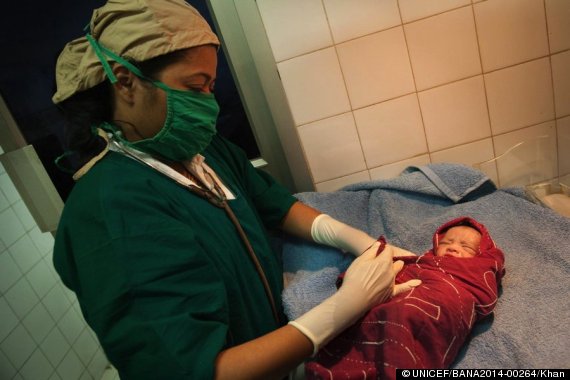
© UNICEF/BANA2014-00264/Khan
A baby's odds of survival increase considerably, research shows, if you dry her off immediately after birth, delay bathing and keep her head covered and her body swaddled until she can be returned to her mother's arms.
2. Give her air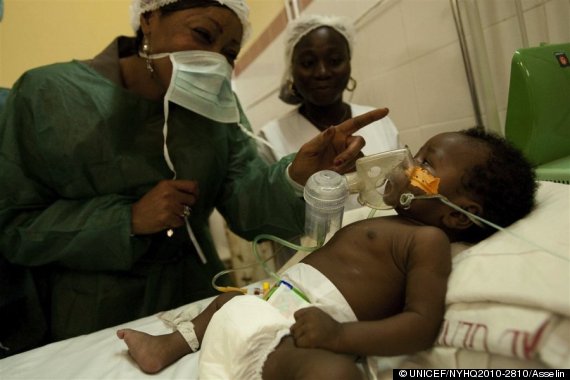
© UNICEF/NYHQ2010-2810/Asselin.
Newborns don't always breathe sufficiently on their own. By keeping a $5 respiration mask, or "bag mask," on hand, you can prevent asphyxia. A landmark study published in May by The Lancet, found that basic training in the use of these masks at facilities that care for new mothers and their babies would help reduce neonatal deaths by 38 percent.
3. Clean the cord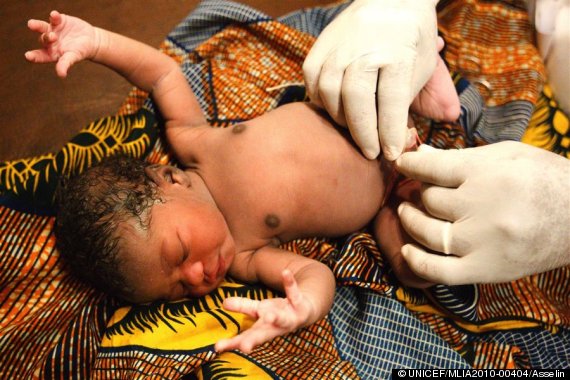
© UNICEF/MLIA2010-00404/Asselin
One way to prevent infections, such as maternal and neonatal tetanus, is to sterilize the instrument used to cut the umbilical cord. Chlorhexidine, a basic antiseptic, costs just a few cents and can reduce neonatal mortality by 23 percent, according to the Lancet study.
4. Breastfeed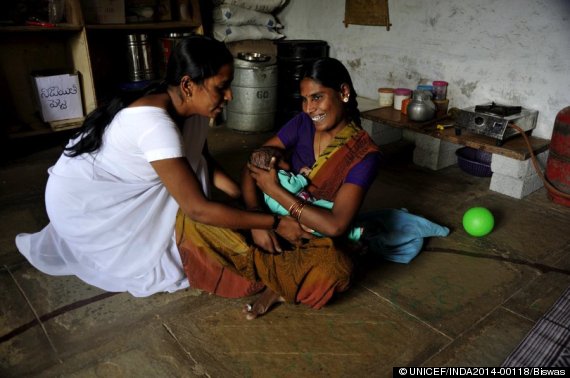
© UNICEF/INDA2014-00118/Biswas
Breast milk is the single best source of nutrition for infants, in addition to supporting their immune systems by delivering antibodies from mother to child. The Lancet study claims that breastfeeding within the first hour after birth can be lifesaving, reducing neonatal mortality by 44 percent. Supporting a mother's efforts to breastfeed (something that doesn't always come naturally or easily) can go far in terms of both the baby and mother's health and wellbeing.
5. Hold the baby close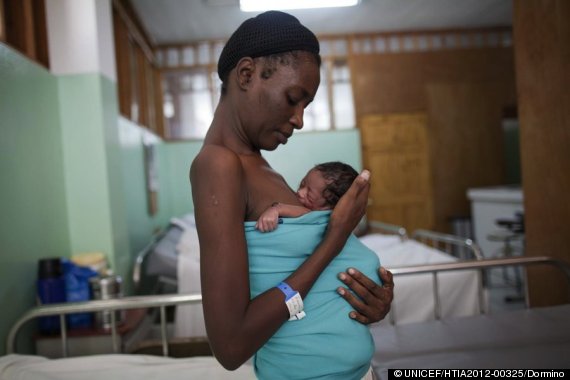
© UNICEF/HTIA2012-00325/Dormino
By maintaining skin-on-skin contact with her newborn baby--simply by holding her close to her chest and covering up, kangaroo-style--a mother can help regulate her baby's body temperature, breathing and brain activity. Research shows it also promotes the flow of breast milk and helps prevent infection. It is particularly effective for preterm and low-birthweight babies, reducing risk of death in those cases by 51 percent.
Promoting proper neonatal care through these five steps is an important component of UNICEF's mission: Protecting the world's most vulnerable mothers and their babies in some of the most dangerous and remote parts of the world.
For more information, please visit unicefusa.org.